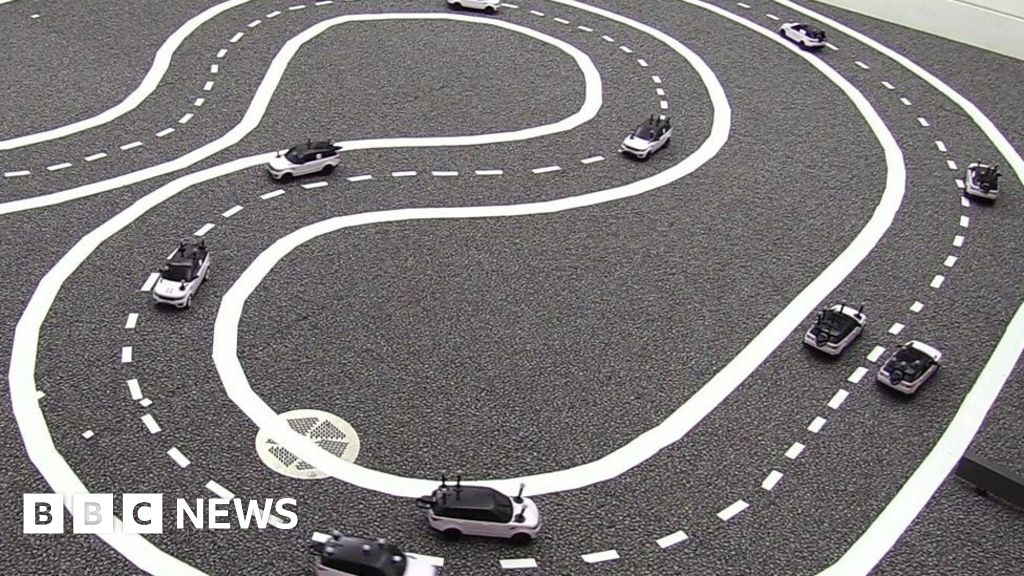Driverless Cars: Cambridge University Model Cars 'talk' To Avoid Jams

A fleet of 16 miniature cars have been programmed to communicate with each other to avoid traffic jams.
Researchers at Cambridge University set up a track and stopped one of the driverless cars, blocking one of two lanes, to see how they reacted.
When the communication system was switched off, a tailback soon appeared in the blocked lane. However, when the cars were allowed to communicate, they slowed down to let each other pass and keep traffic moving.
The study concluded that driverless cars could improve traffic flow by at least 35%.
Scientists are moving on to test the fleet in more complex scenarios, with different intersections, vehicle types and extra lanes.
-
21 May 2019
From Chip War To Cloud War: The Next Frontier In Global Tech Competition
The global chip war, characterized by intense competition among nations and corporations for supremacy in semiconductor ... Read more
The High Stakes Of Tech Regulation: Security Risks And Market Dynamics
The influence of tech giants in the global economy continues to grow, raising crucial questions about how to balance sec... Read more
The Tyranny Of Instagram Interiors: Why It's Time To Break Free From Algorithm-Driven Aesthetics
Instagram has become a dominant force in shaping interior design trends, offering a seemingly endless stream of inspirat... Read more
The Data Crunch In AI: Strategies For Sustainability
Exploring solutions to the imminent exhaustion of internet data for AI training.As the artificial intelligence (AI) indu... Read more
Google Abandons Four-Year Effort To Remove Cookies From Chrome Browser
After four years of dedicated effort, Google has decided to abandon its plan to remove third-party cookies from its Chro... Read more
LinkedIn Embraces AI And Gamification To Drive User Engagement And Revenue
In an effort to tackle slowing revenue growth and enhance user engagement, LinkedIn is turning to artificial intelligenc... Read more

